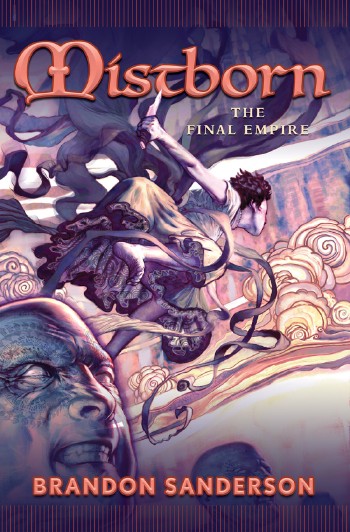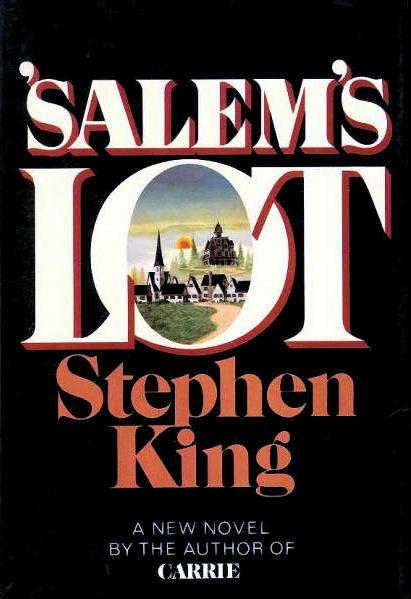
Written By: Brandon Sanderson
Published By: Tor Books
So there once was a time when I was young and full of energy and ambition. I liked to write stories fairly frequently, but the stories tended to not go many places and ultimately they ended up as derivative works inspired by other works that people did a whole lot better at this whole writing thing than I could ever hope to anyway (see what I mean?). My primary influences during this time were video games, and if you were to read these embarrassing manuscripts that I eventually stopped creating for a number of reasons, you would see just how much their presence overwhelmed my every thought. In addition to that, I could not bear to take any project all the way to the end and oftentimes I would purposely cut my narrative short because I got bored or didn’t know how to connect things together in any meaningful way.
Mistborn: The Final Empire reads to me very much like one of those early manuscripts. In fact, I could’ve written something just like it if only I had just persevered in my desires to become a highly successful and well-loved fantasy author. It is a manuscript that is largely mechanical in its execution that has an interesting premise, an efficient setup, and a really good payoff, but isn’t without its flaws.
The book tells the story of an efficient-by-design group of people who have come together to overthrow an oppressive fundamental regime. The leader of the group is a very charismatic older dude by the name of Kelsier, who of course has a rough past that underlies his entire motivation. He is also what this mythos styles as an “Allomancer,” or a guy who can perform various super-human feats after swallowing tinctures of pure metal. He brings in a very young (and very abused) street urchin from the lower castes of the imperial society due to her inborn abilities as an Allomancer in which is revealed that she possesses a lot of natural skill. As the story progresses, we see plans getting planned, plans getting foiled, foils getting planned, and plans foiling plans. Throughout all this foolery, we are treated to a needlessly cryptic backstory about what being a Mistborn means and what drives the characters and why the world is as insufferable as it is–tropes typical for this type of work.
As a fantasy adventure novel, Mistborn: The Final Empire certainly succeeds in telling a story that has its ups and downs. Things get set up, things get paid off, things get tied together, and there is action that drives characters to respond to changes in the situation. Sprinkled within are various commentaries about social orders, slavery, corruption in government, thievery, and so on. For the purposes of action and or adventure, it is as adequate as they come.
Problems arise, however, in the ways Allomancy, the lynchpin in which the whole mythology revolves, is handled. This book takes a weird approach in separating itself from the normal mechanics of swords and sorcery. Basically, there are 8 or so different types of metal that endow Allomancers with various powers like telekinesis or improved senses. The main difference between full-blown Allomancers and the lesser-powered “Mistings” is that Allomancers have full access to all of these metals while Mistings may only utilize one to its full potential. In a sense, this balances the magic in ways that keep things grounded in reality and allows tension to come and go whenever required, and safely redefines the magic formula.
But when Allomancy itself comes into play, it is handled very much like a video game in that practitioners can “take stock” in abilities they have at their disposal, they can “cast” their powers much like wizards can, and have a way to kind of monitor their remaining resources in what can only be described as a Magic Meter sort of way. When first confronted with a situation that can only be resolved using Allomancy, its use is ramrodded right into the narrative and doesn’t make any sense at all. This execution, at first, is surprisingly dry and even pragmatic. Characters “burn” the metal, and then they “stop burning” the metal at whatever times the plot dictates. I guess there is something to be said about showing and not telling, but at least get some subtlety in there, novel. Geez.
Anyway, the dry mechanics surrounding Allomancy take some getting used to, but it won’t completely keep you off guard. The other problems that arise are within the narrative itself. The rest of the text is also dry and pragmatic, unless there is an action scene. Internal monologues show up within character points-of-view that are sometimes appropriate, sometimes not, and when it’s not appropriate it really sticks out. Character motivations are quickly summarized in some italicized text just to make sure the reader is still paying attention, and many characters are also either really annoying or just flatline completely even when their successes are not guaranteed. Kelsier, for instance, is supposed to be a really self-confident dude with a shaky past full of tragedy, betrayal, and loss. He’s always smiling and joking around, always looking ahead to a brighter future I guess, but at the same time we are given too much information about what drives him and what motivates him through some poorly placed internal monologues that don’t leave us wondering anything. We don’t remain intrigued in him at all, which is a tad unfortunate.
The character Vin is also very hard to stomach at first. Much like Kelsier, we are made fully aware of her faults and her internal conflicts, often because there is no better context where these elements can better fall into place. We’re just given them as a sort of ‘thanks’ for continuing our slog through this story and it’s something we need to know in order to connect some dots later on in a very forced manner. And it gets irritating. It’s not bad storytelling, but if you are looking into the Mistborn series for a sense of thrill and intrigue, you’ll be plodding along for a while before the good shit starts to happen and the headaches stop.
That being said, once you reach the top of the arc for Mistborn: The Final Empire, you will be whisked away on a rollercoaster ride that is a real thrill, and will leave you wanting more when you reach the end. As stories go, it hits all the beats required, there aren’t much in the way of surprises, but you will be entertained and at the very least interested in seeing where this world ends up.
B
Choice Passages:
“He is a Misting, Vin thought. Kelsier and Dockson called him a ‘Smoker.’ She would probably have to figure out what that meant on her own; experience told her that a powerful man like Kelsier would withhold knowledge from her as long as he could, stringing her along with occasional tidbits. His knowledge was what bound her to him–it would be unwise to give away too much too quickly.”
“Gritting his teeth, Kelsier flared his pewter again; it was running low, he noticed. Pewter was the fastest-burning of the basic eight metals.”
“Renoux studied her, and Vin glanced away. She didn’t like it when people looked at her that way–it made her wonder how they were going to try and use her.”
 Directed by: Gary Ross
Directed by: Gary Ross







